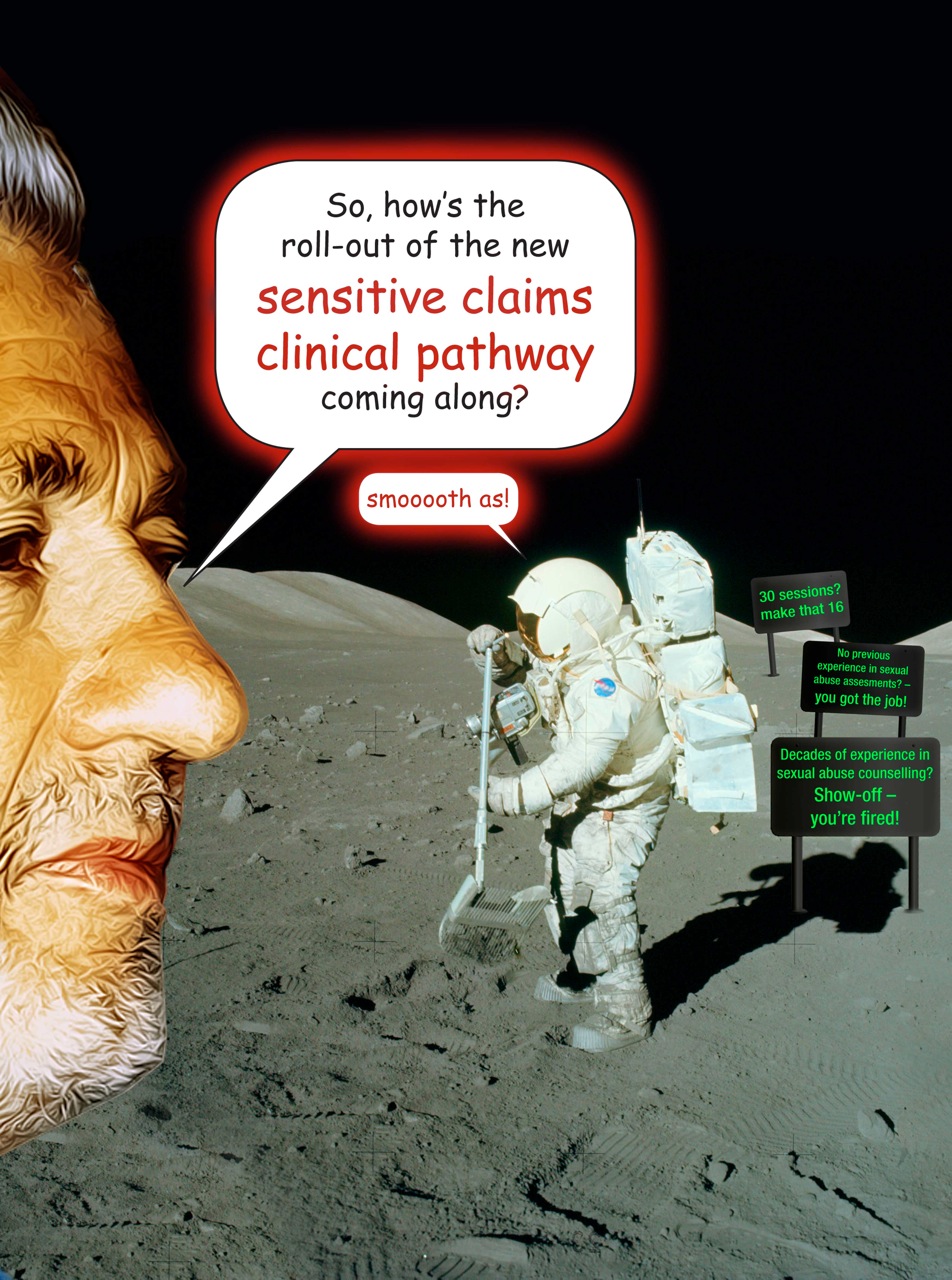As 'Smooth' as the Surface of the Moon
Press release from NCWNZ
The last two weeks have seen the implementation of the new ACC clinical pathway for sensitive claims and the transition has been anything but ‘smooth’, says the National Council of Women of New Zealand (NCWNZ).
“Implementation was always going to be haphazard and risky,” says Elizabeth Bang, NCWNZ National President. “This is what happens when the service providers are ignored, and are expected to apply a diagnosis based on a system that few in New Zealand are qualified to administer.”
ACC implemented the new clinical pathway against a backdrop of professional dissension. Massey University, the authors of the research report used as the basis for the process change, has publicly removed itself from any responsibility for ACC’s decision-making, when it comes to the partial, fragmented implementation of the guidelines.
“The situation on the ground is best described as chaotic,” says Elizabeth Bang.
NCWNZ has to date heard that:
- The severe workforce shortage of those eligible practitioners who can give a diagnosis using the DSM IV criteria is causing considerable delay and inappropriate and unethical assessment processes.
- It appears that psychologists are being flown around the country to assess victims in their homes because they do not have premises in that location.
- The use of assessors who have no history or training in sexual abuse.
- Counsellors and therapists who are not currently eligible to give a diagnosis using DSM IV, are having to submit claims for clients which ACC will use for making referrals to the DSM IV qualified assessors. This significantly lengthens the process before a client knows if the claim will be accepted, and essentially captures the counsellors and therapists as “middle” women and men, rather than the previous position they held which ensured the claims could be approved in a more acceptable timeframe.
- The benefit of counsellors and therapists being able to undertake assessments themselves meant they could also respond to the acute presenting need of the client for stabilisation, containment and risk assessment. This is now not being done before the very delayed assessment process.
- ACC subsidises counsellors and therapists for a one hour session when preparing the ACC 45 claims, this includes the consultation time with the client. On average it is taking 90 minutes to prepare such material as the session notes, and all other relevant information to support the claims are included. The system places pressure on the provider to work without pay, to provide the fullest and best possible material to support the client within a specific time constraint. The client is caught having to discuss their traumatising event(s) in a manner that could be likened to a factory-line.
- Previously, survivors who historically had an accepted claim, but at a later date presented for further help could do so to an ACC registered counsellor. A report would be generated following one ACC subsidised session. This system has now been removed; a survivor will need to meet the entire cost of the session, or a counsellor will have to go without payment for service. Only a letter of referral and supporting information can be submitted to justify why further treatment should be provided.
NCWNZ acknowledges that it is not unusual or uncommon for survivors to undergo more than one consolidated period of counselling or therapy. Often the survivor can only process so much change in their behaviour and lives that to push beyond that level could be less effective and too risky for the client. Also, life changing events such as parenthood, death of a loved one, economic downturn, such as a recession can trigger behaviour in a survivor that requires support, and from there an enhanced level of recovery can be achieved.
“Had the views of the sector been considered in the months and weeks leading up to the roll-out of the clinical pathway,” says Elizabeth Bang, “then ACC’s belated desire to talk would not appear so farcical. All believe that building upon the pathway following its implementation smacks of experimentation, with the victims of sex crimes being the guinea pigs.”
The adoption of the diagnostic tool has the effect of pitting one key section of the service provision, counsellors, social workers and therapists, against the other, clinical psychologists and psychiatrists.
As an educator and advocate for women, children and families, NCWNZ deplores the actions taken by ACC, and further notes the support of the Minister of ACC in this debacle.
“We will not keep these ongoing concerns and problems behind closed doors,” says Elizabeth Bang. “The public demands transparency.”
NCWNZ is awaiting a response from the Minister of ACC, Hon Nick Smith regarding its request that the review of the system be immediately undertaken and the implementation of the new scheme halted.
“We are hopeful that the Minister will respond favourably to our request. We are however prepared to escalate the issue, as simply from the user perspective alone, what has transpired is discriminatory,” concluded Elizabeth Bang.
http://www.scoop.co.nz/stories/PO0911/S00160.htm



No comments:
Post a Comment